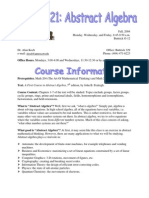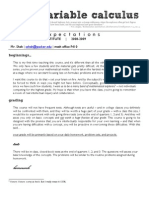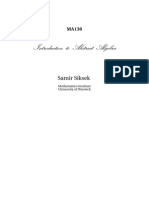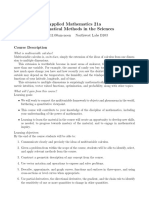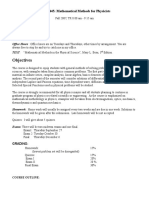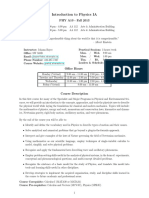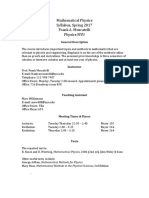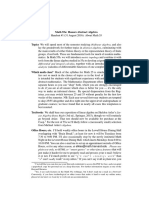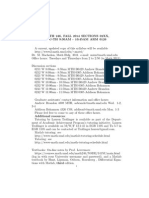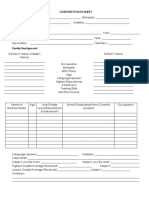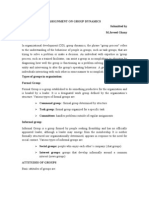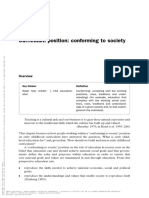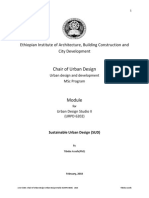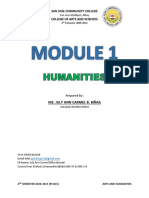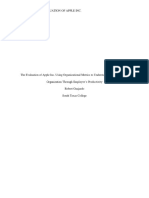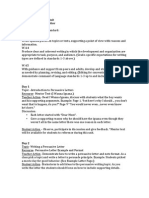0% found this document useful (0 votes)
224 views1 pageSyllabus For Math 131
This course is an introduction to topology. It will cover fundamental topological concepts like topological spaces, continuous maps, compactness, connectedness and separation axioms in the first part. In the second part, it will introduce algebraic invariants of topological spaces such as the fundamental group. The prerequisites are some experience with abstract mathematics. The textbook is Topology by Munkres. There will be weekly homework assignments, one midterm exam, and a take-home final exam. Grades will be based on homework, a midterm, and a final exam.
Uploaded by
cgo1114Copyright
© © All Rights Reserved
We take content rights seriously. If you suspect this is your content, claim it here.
Available Formats
Download as PDF, TXT or read online on Scribd
0% found this document useful (0 votes)
224 views1 pageSyllabus For Math 131
This course is an introduction to topology. It will cover fundamental topological concepts like topological spaces, continuous maps, compactness, connectedness and separation axioms in the first part. In the second part, it will introduce algebraic invariants of topological spaces such as the fundamental group. The prerequisites are some experience with abstract mathematics. The textbook is Topology by Munkres. There will be weekly homework assignments, one midterm exam, and a take-home final exam. Grades will be based on homework, a midterm, and a final exam.
Uploaded by
cgo1114Copyright
© © All Rights Reserved
We take content rights seriously. If you suspect this is your content, claim it here.
Available Formats
Download as PDF, TXT or read online on Scribd
/ 1
